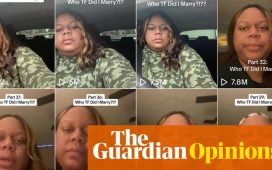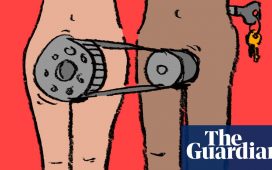Hands up who thinks living through a global pandemic is hard? (Everybody!). Hands up who wants to shoulder the existential burden that comes with a global pandemic alone? (Nobody!).
No matter what you might think wistfully looking at your single friends, solo living isn’t a picnic even when you’re not in the midst of a pandemic. It can be a constant negotiation between glorious freedom and exhausting loneliness.
For nearly a month, those who live alone in New South Wales and don’t have an “intimate partner” haven’t been able to spend social time with anyone outside a socially distanced walk, or a masked bump-in while waiting to order a coffee.
Every day the NSW government refuses to allow a single social bubble they’re playing Russian roulette with the mental health of people living on their own.
Sure, there are some pretty rad things about living alone. You can walk around in your undies whenever you like. You can leave a pile of unfolded laundry to get as tall as a termite mound. You can watch a Barbra Streisand movie every night for a week while inhaling packets of gummy bears and there’s zero dissenting voices.
Yet there are times when you can feel achingly alone: where you’d like to make another person dinner; where you’d like to watch and discuss a TV show with someone other than Twitter; where you don’t want to have the freedom to lean into your lazy essential self.
I’m 41, single and have been in my own place, on and off, for the last 10 or so years. Romantic relationships in that time have been sporadic. I’m also someone who has lived with depression at semi-regular intervals since I was a child, so living alone already comes with significant risk.
Over that time, I’ve had to build up a life around me that keeps the gremlins of loneliness and isolation at bay. Otherwise the depression seeps in like a mystical summertime fog (a niche reference for anyone familiar with the small town I grew up in, Robertson). I know what I need to stay mentally well and functioning, and it means connecting regularly with a rich and vibrant community of family and friends.
Here’s what a week out of lockdown might look like for me to get those connections: working at my favourite library cafe and bumping into friends and colleagues for chats; visiting my baby niece and nephew; dinner and a play with a friend; a dog walk and pizza with my sister; coffee meetings about projects I’m working on; seeing my parents on the weekend; dropping in at my bestie’s to watch the news and gossip; meeting pals at the markets for breakfast; a movie and a wander around the shops with another frolleague.
Pretty low key, but those in-person connections are essential to my mental health. The endorphins and oxytocin that are released with a great chat, a good laugh, being cheek to cheek with a baby – that’s all science. We know how important they are in staving off the blues. Taking these things away, as lockdown does, comes at a real cost.
It starts with getting out of bed later, showering later, putting on yesterday’s clothes instead of fresh ones, going back to bed to “read” then sleeping for three hours. And when you start going down that road, how can you motivate yourself to get outside for a socially distanced walk with a friend?
Being starved of human contact is switching off an energy source we all need to survive.
The NSW government allows people living alone to visit with, and mix with, an “intimate partner”. This suggests that as long as there’s some sort of sexual relationship happening, it’s OK for those two people to visit each other, catch up on each other’s days, share some dinner, vigorously debate what a strange departure the second series of Miracle Workers is compared with the first.
Technically, had I started a sexual relationship with someone a week before lockdown, that person would have more right to be someone I connect with than my sister, who has been my closest companion almost my entire life – who knows to instigate a “folding party” for the clothes mound that develops when the summer fog rolls in. Or my best friend, who I talk to on the phone at least five times a day as we truly share our lives, intimately.
It’s madness.
“Intimate partners” are allowed because there’s an acknowledgement on some level that we need to see and be around the people we’re close to So, why are single people left out of this equation?
Is it because the decision-makers are by and large living within “couple privilege” or “family privilege” and those living alone are their blind spot? Or are they simply doing what governments have done since governments governed: focus in on the majority, forget about single people.
Cynically, I even wonder whether our society subconsciously punishes those who are alone – assuming them somehow defective because they’ve not been chosen as partner, or that choosing to live alone is abnormal and selfish; so it’s somehow OK for the government to ignore their aloneness during the pandemic because there are more pressing issues at hand. Toughen up: at least we’re letting you walk around the park with your friend!
I can only hope the NSW government follow the lead of the Victorian government who successfully introduced the single social bubble last year. Single people need to be around the people they’re close to – just like everyone else.














